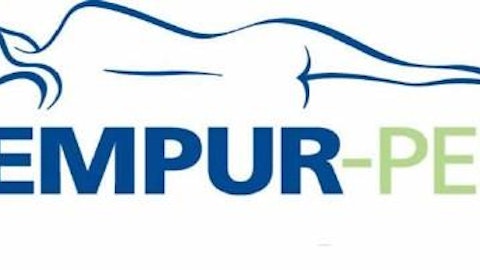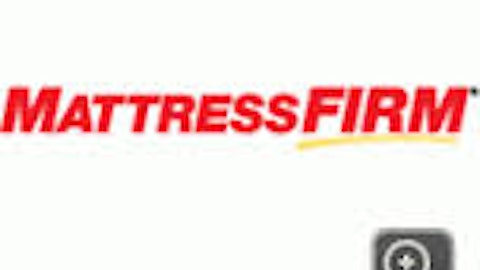After a weak quarterly report from a leading mattress company, should investors of its competitor also be worried?
Select Comfort Corp. (NASDAQ:SCSS) and Tempur Sealy International Inc (NYSE:TPX) tend to piggyback off the other, as one company’s earnings is an indication of the other. Granted, with Tempur Pedic’s acquisition of Sealy there are a few fundamental changes that will occur, but for the most part, these two companies are the primary players in the luxury mattress space.

Select Comfort Corp. (NASDAQ:SCSS) was the first to report earnings for the second quarter, and is now trading lower by almost 10%. The company missed revenue expectations with top-line growth of 1% year-over-year. However, it was the bottom-line miss and the fall in margins that really took Wall Street by surprise.
In the quarter, Select Comfort Corp. (NASDAQ:SCSS)’s operating income fell to $15.1 million from $25.9 million in the year prior, as operating margins fell 530 basis points over the prior year. Much of this fall was related to a 6% drop in comparable sales, but the macro environment is requiring that mattress prices be lowered in order for companies to stay relevant. I think with Select Comfort Corp. (NASDAQ:SCSS), we are seeing this play out right now.
Round Two of Weak Performance?
With Select Comfort Corp. (NASDAQ:SCSS), the damage has already been done, but with Tempur Sealy International Inc (NYSE:TPX)(NYSE:TPX)(NYSE:TPX)’s quarter being announced on July 22, Tempur Sealy International Inc (NYSE:TPX) could still experience significant loss. Immediately, Tempur Sealy International Inc (NYSE:TPX) bulls will say that the business approach for these two companies are different, and that Select Comfort Corp. (NASDAQ:SCSS)’s weakness does not indicate poor performance for Tempur Sealy International Inc (NYSE:TPX). However, it is the fact that the business approach is different that is causing a reason for concern.
For the last few years, Select Comfort has transitioned much of its business from a third-party distribution only company to a direct seller with its own stores. In the process, margins have been a bit weak throughout this transition, but once established, Select Comfort’s direct sales approach returned significantly greater margins than its third-party approach.
With a third-party approach, Select Comfort competes with the likes of Tempur Sealy International Inc (NYSE:TPX) in pricing, and with it being a competitive space, prices have continuously declined. In fact, it was this space that led to much of the company’s fundamental disappointment.
Tempur does not operate its own stores, as mattresses are sold through third-party retailers. As earnings approach for Tempur, this is definitely a concern to monitor, and Select Comfort’s weakness could indicate an even bigger disappointment for Tempur, seeing as how all of its revenue is earned through third parties.
Final Thoughts
Just so you know, I am not necessarily a mattress bear. I think long-term the space has the potential to be attractive, as the home improvement space and the overall economy continues to expand. However, I am concerned with Tempur’s upcoming quarter and the near future for the space.
Over the last year, Select Comfort traded higher by just 10.5%, meaning that expectations have remained somewhat conservative. Tempur has rallied 75%, mostly because investors expect good synergies with its addition of Sealy. However, in this case, more assets could mean more weakness, and after seeing Select Comfort’s quarter, I’m not sure I’d be too optimistic heading into Tempur’s earnings report.
The article Should Mattress Investors Be Worried About Earnings? originally appeared on Fool.com and is written by Brian Nichols.
Brian Nichols has no position in any stocks mentioned. The Motley Fool owns shares of Tempur-Pedic International. Brian is a member of The Motley Fool Blog Network — entries represent the personal opinion of the blogger and are not formally edited.
Copyright © 1995 – 2013 The Motley Fool, LLC. All rights reserved. The Motley Fool has a disclosure policy.




